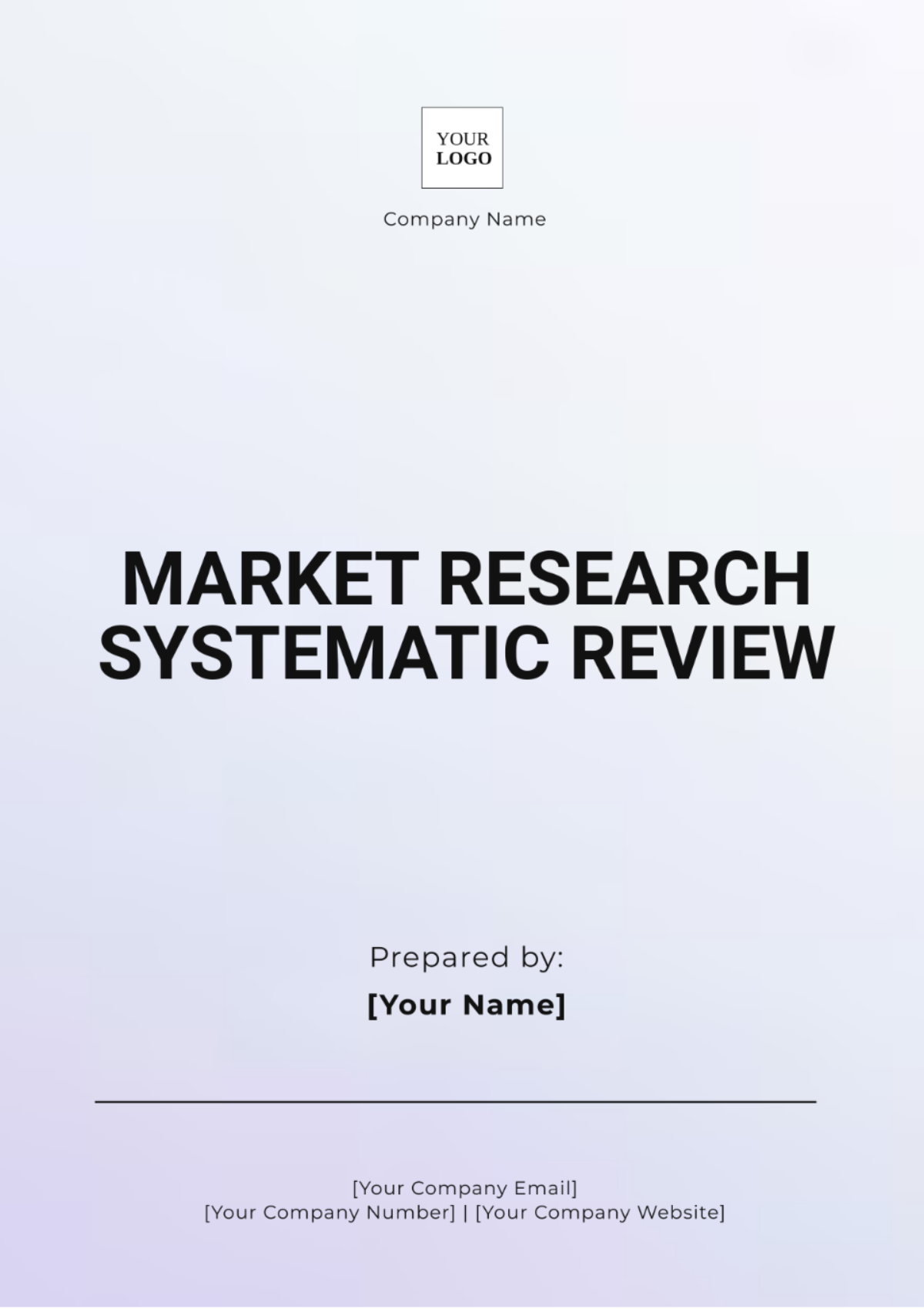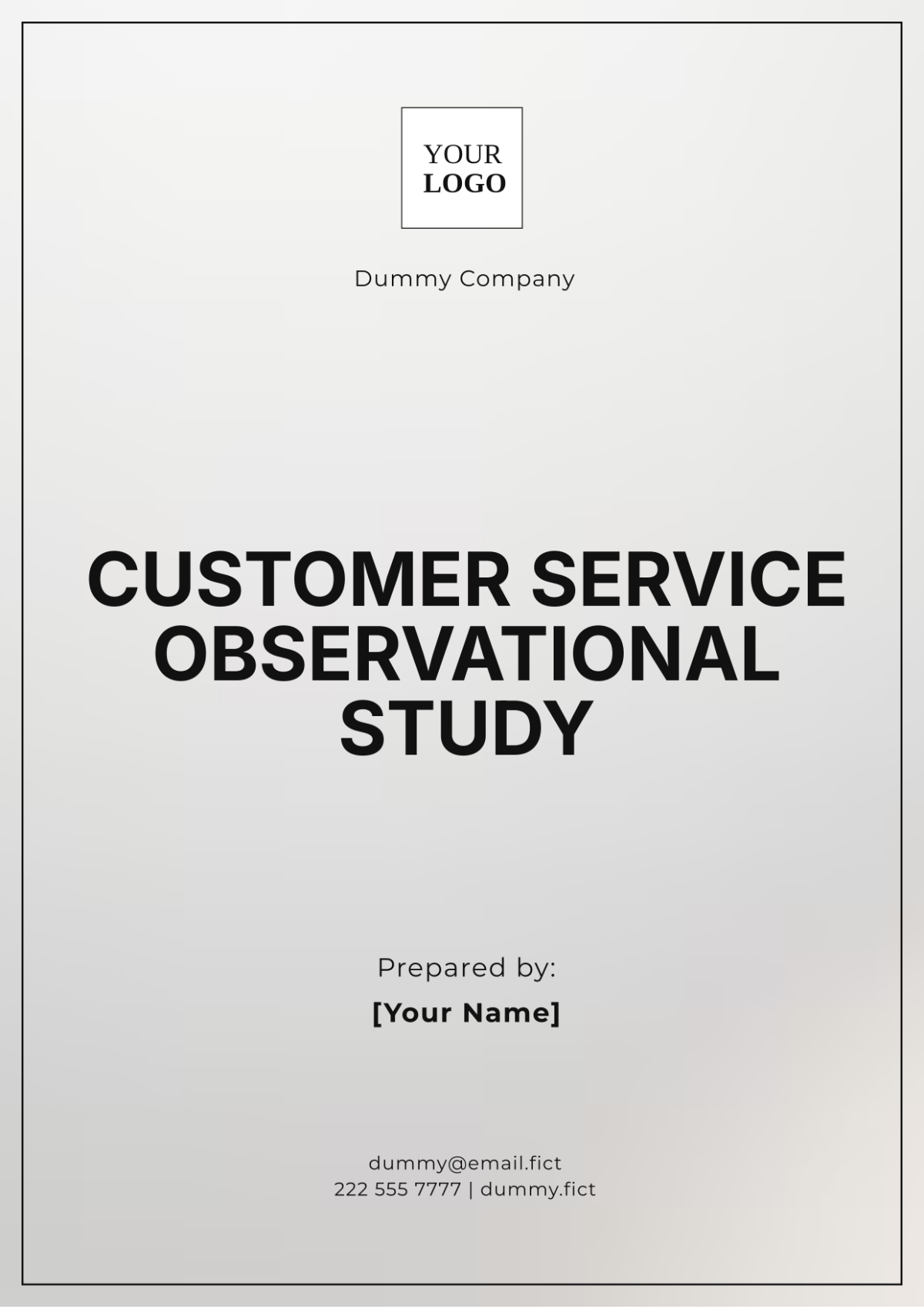R&D Insight Qualitative Research
Prepared by: [Your Name]
Company: [Your Company Name]
Date: [Date]
1. Introduction
In today’s rapidly evolving technology landscape, understanding the nuances of research and development (R&D) is crucial for maintaining a competitive edge. This qualitative research aims to uncover key insights into R&D processes, focusing on innovation strategies, common challenges, and emerging trends in technology development. By analyzing qualitative data from industry experts, this study seeks to provide a comprehensive understanding of how R&D can be optimized to drive innovation.
2. Research Objectives
The primary objectives of this research are:
To identify key factors influencing successful R&D processes.
To understand the challenges faced by R&D teams in different industries.
To explore emerging trends and technologies that impact R&D.
To provide actionable recommendations for enhancing R&D strategies and outcomes.
3. Methodology
This study employed a qualitative research approach, utilizing the following methods:
Interviews: Conducted in-depth interviews with 15 R&D managers and industry experts from various sectors.
Focus Groups: Organized two focus groups with R&D teams to discuss common challenges and innovative practices.
Case Studies: Analyzed three case studies of successful R&D projects to identify best practices and lessons learned.
Data was collected through semi-structured interviews and recorded for detailed analysis. Thematic analysis was used to identify recurring themes and patterns in the responses.
4. Findings
The research revealed several key findings:
Innovation Drivers: Successful R&D teams prioritize cross-disciplinary collaboration and invest in emerging technologies such as artificial intelligence and machine learning.
Challenges: Common challenges include managing project scope, integrating new technologies, and ensuring alignment with strategic goals.
Trends: There is a growing emphasis on agile methodologies and iterative development processes to accelerate innovation.
5. Analysis
The findings highlight that R&D success is closely linked to the ability to adapt to new technologies and collaborate effectively across teams. The emphasis on agile methodologies reflects a shift towards more flexible and responsive R&D processes. The challenges identified, such as scope management and technology integration, suggest areas where organizations can improve their R&D practices.
6. Implications
The insights from this research have several implications for R&D practices:
Strategic Alignment: Organizations should ensure that R&D projects are closely aligned with overall business strategies to enhance relevance and impact.
Technology Adoption: Investing in and adopting emerging technologies can provide a competitive advantage and drive innovation.
Collaboration: Encouraging cross-disciplinary collaboration and knowledge sharing can lead to more successful R&D outcomes.
7. Recommendations
Based on the research findings, the following recommendations are proposed:
Adopt Agile Practices: Implement agile methodologies to enhance flexibility and responsiveness in R&D processes.
Invest in Emerging Technologies: Allocate resources to explore and integrate new technologies that can drive innovation.
Enhance Collaboration: Foster a culture of collaboration across different teams and disciplines to improve R&D effectiveness.
8. Conclusion
This research provides valuable insights into the factors that drive successful R&D and the challenges that organizations face. By understanding these dynamics and implementing the recommended practices, companies can improve their R&D strategies and outcomes. The study underscores the importance of adaptability, collaboration, and strategic alignment in fostering innovation.

















































